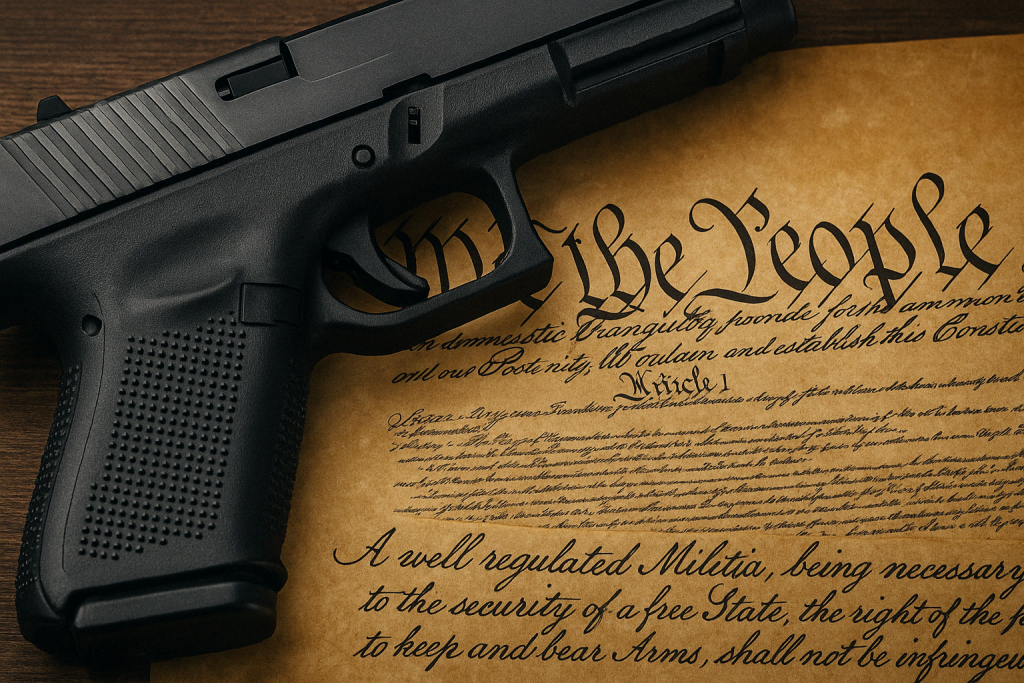Introduction: Navigating Federal Firearm Rights Restoration in Michigan
You can petition the United States government for restoration of your federal firearm rights. The process is complex, and various strategies can help you win. Let us fight for you!

Federal Firearm Rights Restoration Attorneys
If you live in Michigan and have a felony conviction, you may be surprised to learn that even if your gun rights were restored by the state, you might still be prohibited under federal law. This misunderstanding has led to many people unknowingly committing serious federal crimes. Fortunately, recent changes in federal law have opened a new path for some individuals to seek relief through a process known as federal firearms rights restoration.
Understanding this process and how it applies to Michigan residents is critical for anyone hoping to possess a firearm again legally.
Understanding 18 U.S.C. § 925(c): The Federal Legal Framework
Federal law prohibits people with felony convictions from possessing firearms under 18 U.S.C. § 922(g)(1). However, a separate law, 18 U.S.C. § 925(c), offers a potential path forward. This section allows a person to apply to the Attorney General for relief from their federal firearm disability.
To qualify, an applicant must show they are unlikely to act in a way that endangers public safety and that restoring their rights would not be contrary to the public interest.
Historical Context: The 1992 Funding Restriction
Although this statute technically remained in effect, Congress defunded the program in 1992. That defunding prevented the Bureau of Alcohol, Tobacco, Firearms and Explosives (ATF) from reviewing or processing these petitions. For over 30 years, the federal system lacked any functional mechanism to restore gun rights under § 925(c).
This restriction made it impossible for most individuals—especially those with state felony convictions—to regain their federal firearm rights, regardless of their rehabilitation.

The DOJ’s Recent Rule Change on Federal Firearm Rights Restoration
In March 2025, the Department of Justice issued a new rule withdrawing ATF’s delegated authority over firearm rights restoration and reassigning this authority to the Office of the Pardon Attorney. This shift effectively sidesteps the funding prohibition and reactivates the federal firearms rights restoration process.
The rule took effect immediately. The Department intends to process petitions on a case-by-case basis, emphasizing public safety and rehabilitation.
Eligibility Criteria for Petitioning
To qualify for relief under 18 U.S.C. § 925(c), a petitioner must meet several basic conditions:
- The petitioner must have completed all aspects of their sentence, including probation or parole
- They must have demonstrated a sustained commitment to law-abiding conduct
- They must show that granting relief will not be dangerous to public safety or against the public interest
The Application Process: Steps to Petition
A successful petition for federal firearm rights restoration under § 925(c) must be clear, detailed, and supported by strong documentation. Although legal representation is not required, professional assistance often makes a meaningful difference.
A complete petition should include:
- A personal statement explaining the conviction and the changes made since then
- Supporting records documenting the completion of all sentence requirements
- Evidence of stability, such as employment, community involvement, and family support
- Letters from individuals who can vouch for the petitioner’s character and rehabilitation
Petitions must be submitted to the Office of the Pardon Attorney at:
Office of the Pardon Attorney
U.S. Department of Justice
950 Pennsylvania Avenue NW
Washington, DC 20530
Email: [email protected]

Potential Challenges and Considerations
Even well-qualified individuals may encounter roadblocks when seeking federal firearm rights restoration. The process is highly discretionary and subjective. Common difficulties include:
- Gathering strong supporting evidence
- Clearly establishing rehabilitation and public safety
- Understanding how federal and state laws interact
A denial may be issued without a formal appeal process. A strategic, well-documented petition gives applicants the best chance for approval.
Implications for Michigan Residents
Michigan law allows certain individuals to regain state-level gun rights under MCL 750.224f. For non-specified felonies, rights are automatically restored after three years. For specified felonies, individuals must wait five years and then petition a Michigan court.
However, Michigan’s restoration of rights does not necessarily result in the restoration of your federal firearm rights. The ATF and FBI have taken the position that Michigan’s restoration process does not meet the federal requirement for “restoration of civil rights” under 18 U.S.C. § 921(a)(20). Therefore, even if your rights are restored in Michigan, you may still be a prohibited person under federal law.
A Michigan resident with a prior felony conviction who wants to fully restore their rights must pursue federal firearms rights restoration under § 925(c).

Conclusion: Seeking Federal Firearm Rights Restoration with Legal Support
Federal firearms rights restoration is once again possible, but the process is complex. Michigan residents cannot rely on state restoration alone. Anyone serious about legally regaining their Second Amendment rights at the federal level must understand how to build a strong case under § 925(c).
The experienced attorneys with LEWIS & DICKSTEIN, P.L.L.C. have a long history of helping clients navigate challenging legal systems and succeed where others fall short. Our team understands the intricacies of federal and Michigan firearm laws and knows how to present the most compelling arguments on your behalf.
Although hiring an attorney is not required, having the right legal team greatly increases your chances of a successful petition. Contact LEWIS & DICKSTEIN, P.L.L.C. today for a free consultation if you are ready to pursue federal firearms rights restoration with confidence and experience on your side.
Call us today at (248) 263-6800 for a free consultation or complete an online Request for Assistance Form. We will contact you promptly and find a way to help you.












